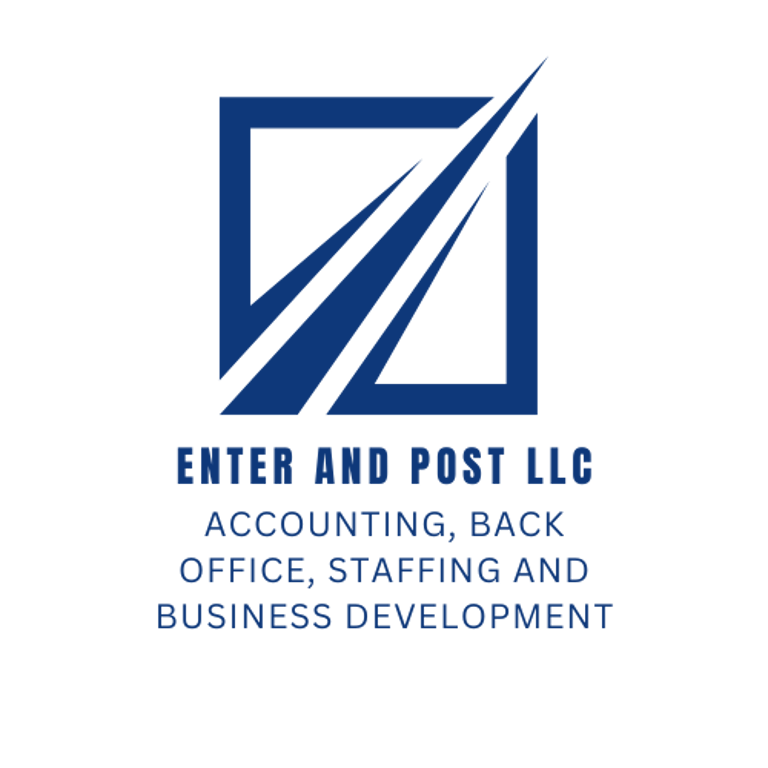Call Us Today! 503-895-5745
Bookkeeping for Entrepreneurs: Essential Skills Everyone Needs!
BLOG
8/13/20243 min read


Bookkeeping for Entrepreneurs: Essential Skills Everyone Needs!
As an entrepreneur, wearing multiple hats is part of the job. From product development to marketing, your plate is full. But one area that often gets overlooked, yet is crucial to your business's success, is bookkeeping. Proper financial management is the backbone of any thriving business, and mastering bookkeeping skills can mean the difference between success and failure. In this blog, we'll explore the essential bookkeeping skills every entrepreneur needs to ensure their business remains financially healthy and poised for growth.
1. Understanding Financial Statements
The ability to read and interpret financial statements is a fundamental skill for any entrepreneur. These documents—namely the balance sheet, income statement, and cash flow statement—provide a snapshot of your business's financial health. Understanding how to analyze these statements allows you to make informed decisions, identify potential financial issues early, and strategize for the future.
Balance Sheet: Shows your assets, liabilities, and equity at a specific point in time, offering insight into your company’s financial stability.
Income Statement: Also known as the profit and loss statement, it highlights your revenues, costs, and expenses over a specific period, helping you track profitability.
Cash Flow Statement: This outlines how money moves in and out of your business, crucial for maintaining liquidity.
2. Effective Record-Keeping
Good record-keeping is the foundation of accurate bookkeeping. As an entrepreneur, you need to ensure that all financial transactions are recorded promptly and accurately. This includes everything from sales and purchases to payroll and tax payments. By maintaining meticulous records, you not only comply with legal requirements but also have the data needed for effective financial planning and analysis.
Tips for Effective Record-Keeping:
Use accounting software to automate and streamline processes.
Regularly reconcile bank statements to ensure accuracy.
Keep all receipts and invoices organized and accessible.
3. Budgeting and Forecasting
Budgeting and forecasting are critical for managing your business’s financial future. A well-prepared budget helps you allocate resources efficiently, while accurate forecasting allows you to anticipate future financial needs and challenges. Entrepreneurs should be adept at creating realistic budgets that reflect both current and projected expenses, as well as at adjusting those budgets as the business environment changes.
Key Considerations:
Regularly review and adjust your budget based on actual performance.
Use historical data and market trends to inform your forecasts.
Plan for both best-case and worst-case scenarios.
4. Understanding Tax Obligations
Taxes are a significant aspect of any business’s financial responsibilities, and understanding your tax obligations is essential for compliance and financial planning. As an entrepreneur, you should be familiar with the types of taxes your business is liable for, such as income tax, sales tax, and payroll tax. Additionally, knowing the deadlines for filing and payment, as well as potential deductions and credits, can save your business money and prevent costly penalties.
Tax Tips for Entrepreneurs:
Consult with a tax professional to ensure compliance and optimize tax strategies.
Keep detailed records of all deductible expenses.
Stay informed about changes in tax laws that could impact your business.
5. Cash Flow Management
Effective cash flow management is crucial for the sustainability of your business. Even if your business is profitable, poor cash flow management can lead to financial difficulties. Entrepreneurs must develop the skill of monitoring and managing cash flow to ensure that the business has enough liquidity to meet its obligations and invest in growth opportunities.
Cash Flow Management Strategies:
Monitor cash flow regularly to identify trends and potential issues.
Negotiate favorable payment terms with suppliers and customers.
Consider setting up a line of credit to cover short-term cash flow gaps.
6. Invoicing and Accounts Receivable
Timely and accurate invoicing is essential for maintaining a steady cash flow. Entrepreneurs need to be proficient in managing accounts receivable, ensuring that invoices are sent out promptly and that payments are collected on time. Implementing an efficient invoicing system helps prevent delays in payment and keeps your cash flow healthy.
Invoicing Best Practices:
Send invoices as soon as the work is completed, or the product is delivered.
Clearly outline payment terms and due dates.
Follow up on overdue invoices to ensure timely payment.
7. Leveraging Technology
In today’s digital age, leveraging technology is a must for effective bookkeeping. Accounting software can automate many of the processes involved in bookkeeping, reducing errors and saving you time. Entrepreneurs should be familiar with the various tools available and choose the ones that best fit their business needs.
Benefits of Accounting Software:
Streamlines data entry and reduces manual errors.
Provides real-time financial insights.
Simplifies tax preparation and filing.
Conclusion
Mastering bookkeeping is not just about crunching numbers; it’s about gaining control over your business’s financial health. By developing these essential bookkeeping skills, entrepreneurs can ensure their business is not only surviving but thriving. Whether you're handling the books yourself or working with a professional, having a solid understanding of bookkeeping will empower you to make informed decisions and steer your business toward long-term success.
At Enter and Post LLC, we specialize in providing expert bookkeeping services tailored to meet the unique needs of entrepreneurs. Contact us today to learn how we can help you manage your finances more effectively and focus on what you do best growing your business.
Contact Us
Socials
📞 USA: (+1) 503-895-5745
📞 Pakistan: (+92) 332-3480678
🏢 Head Office:
8449 SW Barbur Boulevard, Portland, OR 97219, USA
🏢 Back Office:
T9, Sohni Shopping Mall, Karimabad, Karachi 75950, Pakistan.
© Copyright 2025 | Developed By | Enter and Post LLC
